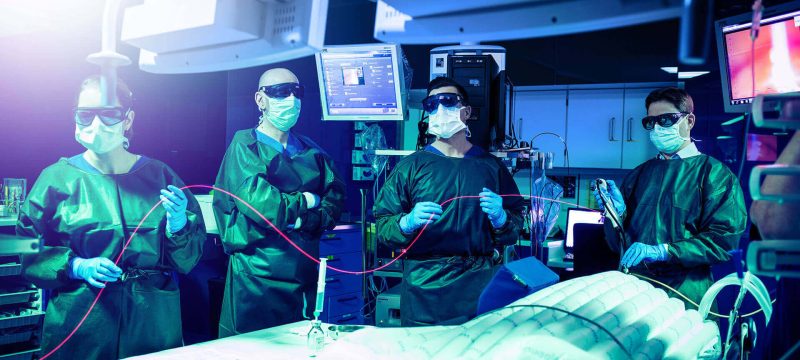Germany's first virtual hospital is to be built in Essen - with talking doctor avatars. The aim is to allay patients' fears and allow trainees to learn more safely.
With an ambitious virtual reality project, the University Hospital in Essen wants to set up a clinic with avatars to save patients long journeys, waiting times and hectic short consultations. Together with 3D printing and avatar manufacturer Doob Group, the Essen-based hospital is launching the Avatar Hospital pilot project in November.
It is the first nationwide project to use personalised avatars. The aim is to inform patients about operations, for example, for which they will later come to Essen. "We also want to use the opportunity to hold conferences in virtual rooms," says Jochen Werner, CEO of the university hospital. The aim is to inspire young specialists in particular.
Part of the hospital is to be replicated in the project. "We are first cloning the heart surgery department, a consultation room and a conference room and then building the entire hospital on top of this," says Vladimir Puhalac, Managing Director of the Doob Group. Avatars will then be programmed from scans of the doctors and nursing staff. The service will be available via an app or mobile website on smartphones, tablets and also on stationary computers.
"A virtual world with avatars in hospital rooms for patients, relatives, doctors and nursing staff can make processes understandable or anticipate them during the course of the day," says Puhalac.
The pilot project is part of the transformation of Essen University Hospital into a smart hospital, which is scheduled to run until 2023. "The Smart Hospital is much more focussed on people than was previously the case in German hospitals," says Thorsten Schabelon from the university hospital.
The first milestones have been reached: The wards have been linked to the electronic patient file, the emergency department has been digitalised and an AI is being developed to process the data generated. The university hospital has already won the German Change Award 2019 for this concept.
Virtual reality for training
However, virtual reality (VR) is not only intended to help patients at the clinic in Essen. The technology could also improve medical training. After all, the biggest challenge is to train students in a practical way without jeopardising patient safety, says health economist David Matusiewicz, who is helping to coordinate the project in Essen.
"Virtual care can be used in teaching in the form of simulation systems. This allows emergency situations to be simulated in public places," says Matusiewicz. Up to 100 avatars could interact in a virtual world.
Instead of observing specialists, students will be able to practise directly on the patient avatar in future. "They receive immediate feedback and can repeat the training until they get it right," says Matusiewicz.
Source: Handelsblatt / ume









